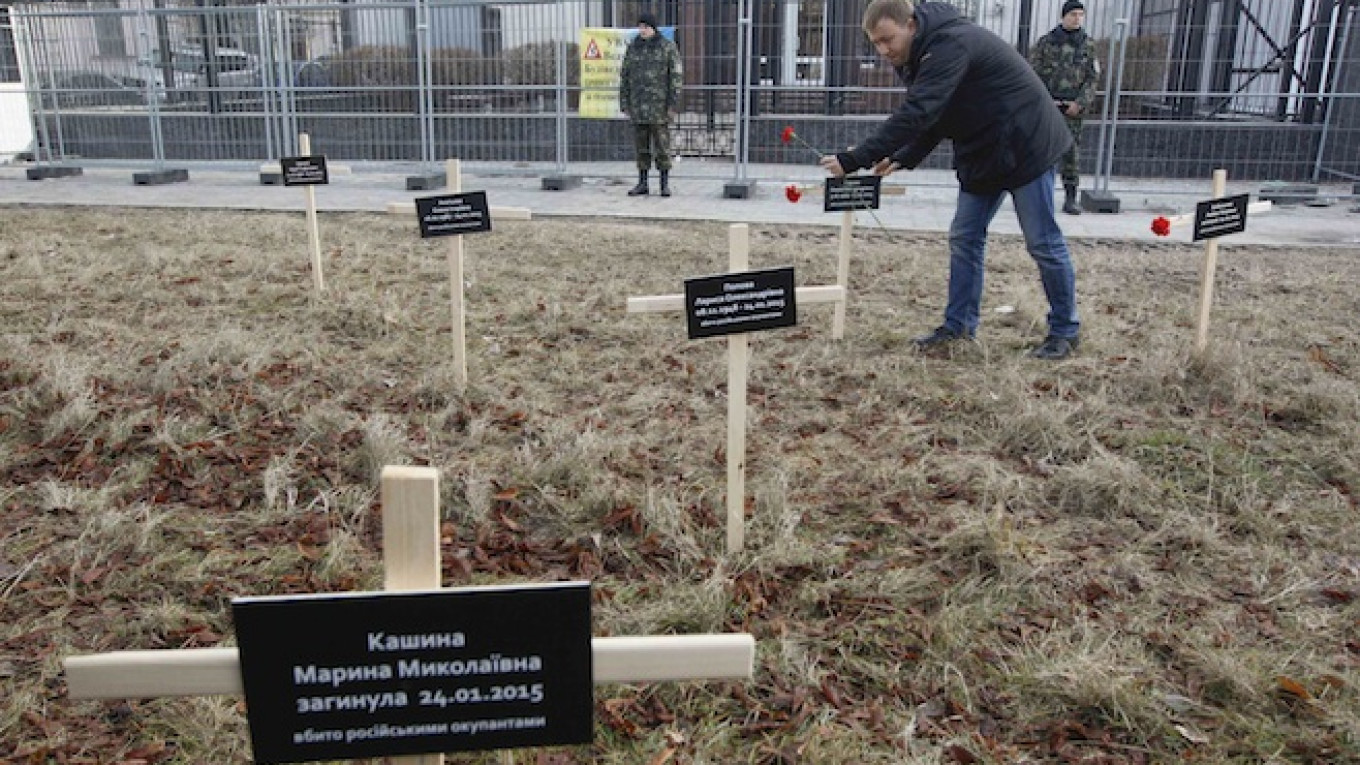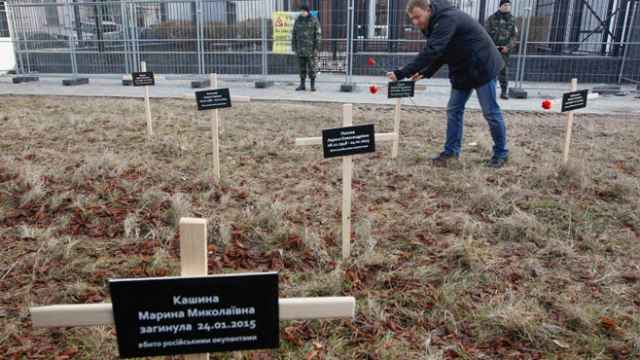KIEV/DONETSK — Fighting raged in eastern Ukraine on Sunday as pro-Russian separatists used artillery fire to try to dislodge government forces from a strategic rail hub after peace talks collapsed.
Hopes of easing the situation evaporated on Saturday with Ukraine's representative and separatist envoys accusing each other of sabotaging negotiations.
"Fighting continues across all sections of the frontline," Kiev military spokesman Volodymyr Polyovy said in a briefing, noting that some 13 soldiers had been killed in the past 24 hours. Other Ukrainian authorities said at least 13 civilians had also been killed in attacks.
The Organization for Security and Cooperation in Europe (OSCE), which took part in the talks in Minsk, Belarus, along with envoys from Ukraine and Russia, said rebel delegates had not been ready to discuss crucial points of a peace plan.
"In fact, they were not even prepared to discuss implementation of a cease-fire and withdrawal of heavy weapons," the OSCE said in a statement.
It said rebels had instead pushed for a revision of a cease-fire plan agreed on in Minsk last September.
The terms of that 12-point protocol have been repeatedly violated, but Kiev and foreign governments see it as the only viable roadmap to end the nine-month-long conflict in which more than 5,000 people have been killed.
The rebels rejected the OSCE's assessment, saying they were ready for dialogue, but unwilling to accept an "ultimatum" from Kiev so long as government forces continued shelling civilian areas, separatist news service DAN quoted rebel envoy Denis Pushilin as saying.
Ukrainian President Petro Poroshenko held a three-way phone conversation with German Chancellor Angela Merkel and French President Francois Hollande in which they expressed their disappointment, German government spokesman Steffen Seibert said.
"The separatists are urged not to block the talks. Russia must, in this regard, also influence the rebels," he said.
The New York Times reported Sunday that President Barack Obama's administration was taking a new look at providing Ukrainian forces with defensive weapons and equipment in the face of the rebel offensive.
Heavy Fighting
In eastern Ukraine, the Kiev military reported no let-up in separatist attacks on government positions.
Clashes are intense around the town of Debaltseve, Kiev spokesman Polyovy said, referring to a Kiev-held transport hub connecting the two main rebel strongholds that separatists aim to cut off, though the situation remained "under control."
The rebel advance has succeeded in seizing part of nearby Vuhlehirsk, he said. On Sunday, the town was being pounded by near constant shelling, a witness reported.
The Interior Ministry said seven civilians had been killed on Sunday in the shelling of Debaltseve, while the Luhansk regional administration said three civilians had been killed in shelling across the region overnight.
Residents are being encouraged to abandon the areas of fiercest fighting, where many have been living in makeshift bomb shelters, waiting for breaks in the bombardment to make quick trips for food and water.
In Kiev-controlled Slaviansk, refugees arrived in buses from Debaltseve and other frontline towns.
Pensioner Vyacheslav Gurov said half of his town of Avdiivka had been completely destroyed.
"We don't even know who's shooting. Both the rebels and the national guard are at it … there's no water, no electricity, no heating, nothing," he said.
In the rebel stronghold of Donetsk, which shook with artillery fire throughout Sunday, the regional administration reported the deaths of at least three civilians, describing the situation as "extremely tense".
A witness saw the body of a young man stretched out on a street in the city center, killed when a shell struck a wall nearby. Nadezhda Petrovna, 68, a neighbor, said the man was trying to run away from the attack when a shell landed in front of him.
"It is like this every day, people are getting killed, we are sleeping fully dressed so we can run into the cellar, this is becoming unbearable," she said.
Following the collapse of Saturday's talks, there was no word on when renewed negotiations might take place.
A Message from The Moscow Times:
Dear readers,
We are facing unprecedented challenges. Russia's Prosecutor General's Office has designated The Moscow Times as an "undesirable" organization, criminalizing our work and putting our staff at risk of prosecution. This follows our earlier unjust labeling as a "foreign agent."
These actions are direct attempts to silence independent journalism in Russia. The authorities claim our work "discredits the decisions of the Russian leadership." We see things differently: we strive to provide accurate, unbiased reporting on Russia.
We, the journalists of The Moscow Times, refuse to be silenced. But to continue our work, we need your help.
Your support, no matter how small, makes a world of difference. If you can, please support us monthly starting from just $2. It's quick to set up, and every contribution makes a significant impact.
By supporting The Moscow Times, you're defending open, independent journalism in the face of repression. Thank you for standing with us.
Remind me later.






